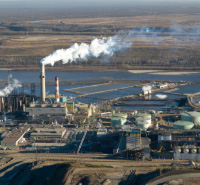The American sheeple have grown tired of Reality TV that is not manufactured. If you show the American people the truth they stampede in the opposite direction because they have been taught that the truth entertains not that the truth shall set you free. First I give you the movie site and then the best review I could find. I know this has been out for awhile and I apologize for my tardiness. Part of the problem is I have spent a fair amount of time on the Gulf Coast, living in Tampa and New Orleans. As a result I have been frequent visitor to St. George Island. So I many times do not trust my emotional response to events there. Still this is important.
http://www.thebigfixmovie.com/
http://www.hollywoodreporter.com/review/big-fix-cannes-2011-review-189062
The Big Fix: Cannes 2011 Review
The Bottom Line
A gloomy but perhaps realistic depiction of the forces of corruption and deceit that produce environmental catastrophes.
CANNES — The Big Fix from Josh Tickell (Fuel) and his wife and co-director Rebecca Tickell is the latest doom-and-gloom environmental documentary although this one takes alarming leaps from a single environmental catastrophe into fantastic realms of worldwide conspiracies, corporate malfeasance and political corruption. Which is not to say the filmmakers got anything wrong. Anyone with an open mind and some attention paid to events of the past few years will have little trouble seeing that the fix was in when the Deepwater Horizon offshore drilling rig blew up in the Gulf of Mexico last year — and this fix will still be in when the next catastrophe happens.
The problems with The Big Fix though are threefold: One, judging by the poor attendance of journalists and film critics at the film’s Palais press screening, few people other than fellow activists are seeing to these doom-and-gloom movies anymore. Two, little here is really new as much of the Tickells’ findings have been reported elsewhere, even by some of those they interview, especially Jeff Goodell, who spent months in the Gulf for his well-researched Rolling Stone article.
Finally, the Tickells describe a “fix” is so vast and powerful, the film can only throws its hands up over any realistic solution other than to install solar panels to heat up your toxic household water.
:}
Go there and read. More tomorrow.
:}







